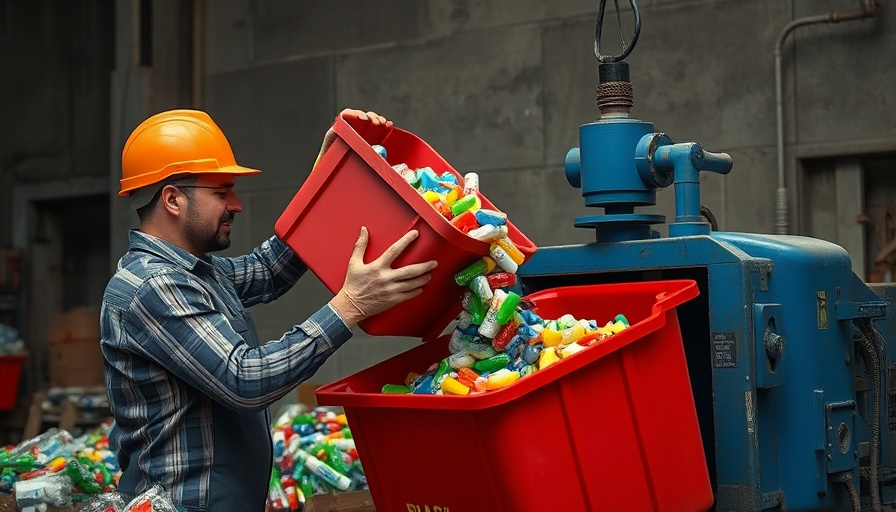
Transforming Plastic Waste into Energy: A Game Changer for Mexico
In the coastal city of Boca del Río, Veracruz, innovative minds are rising to tackle a pervasive problem: plastic waste. A startup named Petgas is harnessing the power of technology to convert discarded plastics into valuable fuels such as gasoline and diesel. This creative solution not only addresses an urgent environmental crisis but also presents a remarkable opportunity for other regions grappling with similar waste issues.
The Plastic Crisis: A Growing Global Challenge
Plastic pollution is more than just an inconvenience; it's a pressing crisis affecting wildlife, natural resources, and human health. According to various reports, millions of tons of plastic end up in oceans and landfills each year, leading to disastrous consequences. For cities like Boca del Río, the accumulation of plastic presents a significant challenge, necessitating innovative responses.
Petgas: A Beacon of Hope in Waste Management
Petgas has set its sights on reversing the tide of plastic waste by converting it into something useful: fuel. This process involves shredding plastics and employing advanced chemical techniques to break them down into hydrocarbons. The result? A stable fuel supply that can potentially reduce dependence on fossil fuels. As the world continues to search for sustainable energy solutions, initiatives like Petgas shine a light on the innovative intersections of waste management and energy production.
Local Impacts: Job Creation and Community Engagement
Not only does this initiative address the environmental challenges, but it also benefits the local community by creating job opportunities. Technicians like Jesus Cuevas, who works diligently at the Petgas recycling center, play a vital role in this transformative process. Their efforts highlight a growing trend where environmental considerations align with local economies, showcasing how responsible practices can stimulate employment and community involvement in sustainability.
A Model for Others: Scaling the Solution
Petgas's innovative approach serves as a model for other cities worldwide. By showcasing that it's possible to convert waste into energy, they pave the way for similar startups to arise globally. Emerging economies particularly stand to benefit, as they often face steep waste management challenges coupled with energy access issues. The potential for scaling this technology offers a dual solution—mitigating waste while addressing energy shortages.
Future Predictions: The Path Ahead for Plastic and Energy
As technologies to manage plastic pollution evolve, we may witness a transformation in how we perceive waste. While Petgas leads the way, it's crucial for other regions and countries to explore and invest in similar projects. Future innovations could even encompass broader applications, where plastics can serve as feedstock not only for fuel but also for various industrial processes. As we pivot towards a more circular economy, the lessons learned from Petgas’s journey could presage a larger movement aimed at sustainability.
Embracing Change: Practical Insights for Travelers and Expats
For digital nomads and expats who are increasingly mindful of their environmental footprint, the efforts of startups like Petgas offer insight into the importance of supporting local sustainability initiatives. When traveling or considering relocation, it’s vital to engage with projects that reduce waste and encourage innovative solutions. Making mindful choices, whether in consumption or lifestyle, contributes not only to personal satisfaction but also helps sustain the communities we interact with.
Join the Conversation: What Will You Do?
The story of Petgas is just one of many emerging narratives centered around sustainability and innovation. Whether you are a resident, traveler, or curious expat, it's an opportune moment to dive into discussions about waste management solutions. Table talks on environmental practices and participation in local clean-up initiatives can foster greater awareness and inspire action across various sectors.
 Add Row
Add Row  Add
Add 




Write A Comment